Are you looking for a way to protect your garden from bugs without using harmful pesticides? You’re in the right place! Keeping bugs out of your garden naturally doesn’t have to be hard. With a few simple methods, you can say goodbye to destructive pests and hello to a thriving, healthy garden.
In this article, we’ll explore six easy and natural ways to keep bugs out of your garden. From companion planting to homemade bug sprays, these tips are safe, cost-effective, and environmentally friendly. Let’s get started on creating a bug-free garden paradise!
1. Companion Planting: Nature’s Pest Control
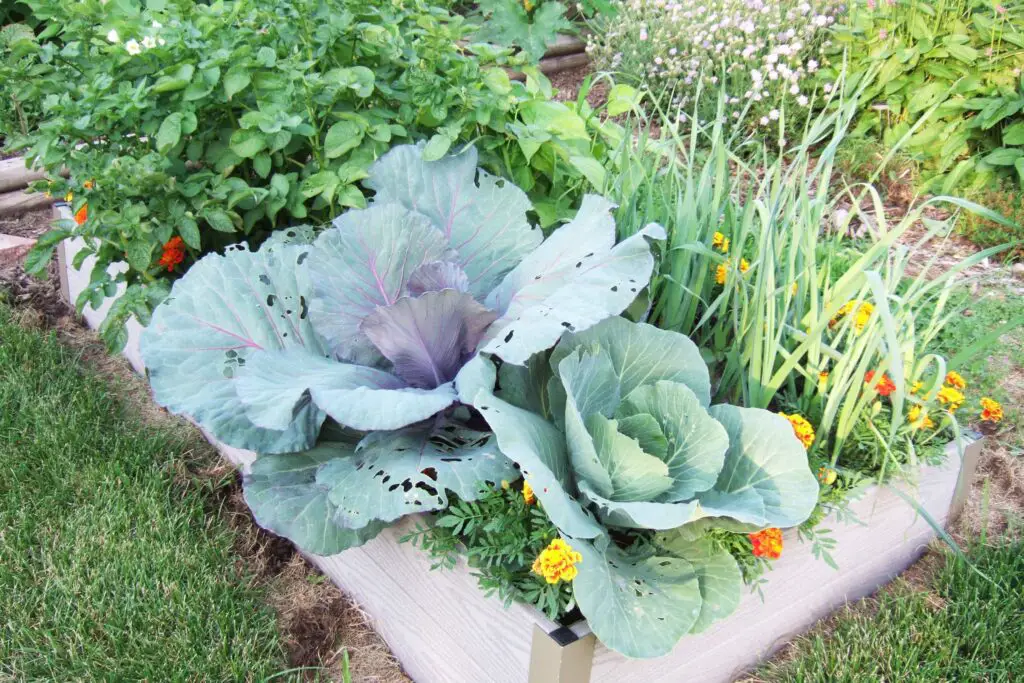
Companion planting is a time-tested gardening technique that helps protect your plants from pests naturally. The idea is simple: grow certain plants together to boost their growth and keep bugs away. Some plants repel harmful insects, while others attract beneficial bugs that help your garden thrive.
Here are some great companion plants and their benefits:
Marigolds: These bright, beautiful flowers are more than just decorative. Marigolds repel destructive insects like aphids and even kill harmful nematodes in the soil. Plant them near potatoes, tomatoes, or other vegetables to protect them from pests.
Alliums: Plants like onions, garlic, and chives are great for repelling many insects. Their strong smell deters bugs while adding flavor to your meals. Grow them around flowers and vegetables to keep pests at bay.
Mint: Herbs like peppermint and spearmint release a strong scent that drives away ants, beetles, and flies. However, mint can spread quickly, so it’s best to grow it in containers.
Lavender: Known for its lovely scent, lavender also keeps fleas and mosquitoes away. Plant it around seating areas or garden borders to enjoy its benefits.
How to Get Started:
- Research companion planting combinations that work in your area.
- Group compatible plants together in your garden beds.
- Rotate crops and companion plants each year to keep pests guessing.
Companion planting is a simple way to create a natural defense system for your garden. Plus, it’s a great way to add variety and beauty to your garden beds!
2. Attract Beneficial Insects: Let Nature Do the Work
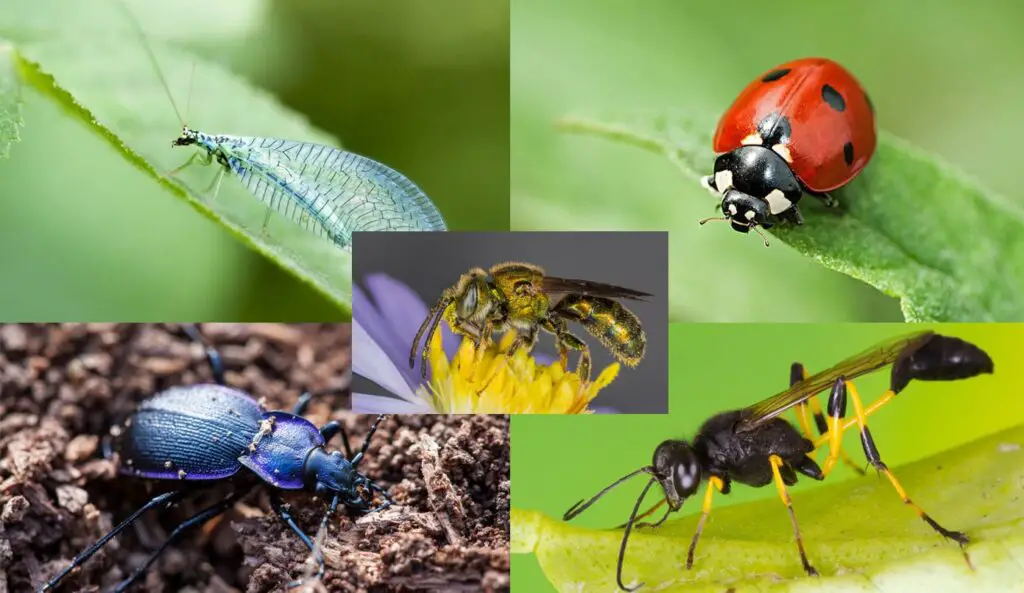
Did you know some bugs are actually good for your garden? Beneficial insects like ladybugs, lacewings, and praying mantises help control pests naturally. By encouraging these helpful bugs to live in your garden, you can reduce the damage caused by harmful pests.
Top Beneficial Insects and Their Benefits:
Ladybugs: These tiny warriors can eat up to 60 aphids a day! They also munch on other soft-bodied insects like mites and mealybugs.
Praying Mantises: These insects are excellent hunters and will catch larger pests like grasshoppers.
Lacewings: Lacewing larvae feed on aphids, whiteflies, and caterpillars.
Dragonflies: They’re great at controlling mosquitoes and other flying pests.
How to Attract Beneficial Insects:
- Plant nectar-rich flowers like sunflowers, dill, fennel, and cosmos.
- Provide habitats like insect hotels or leave small piles of mulch for them to shelter in.
- Avoid using chemical pesticides that can harm beneficial insects.
When you attract helpful bugs, you create a balanced ecosystem in your garden. These natural allies will do the hard work for you, so you can spend more time enjoying your garden.
3. Use Neem Oil: A Natural and Powerful Solution
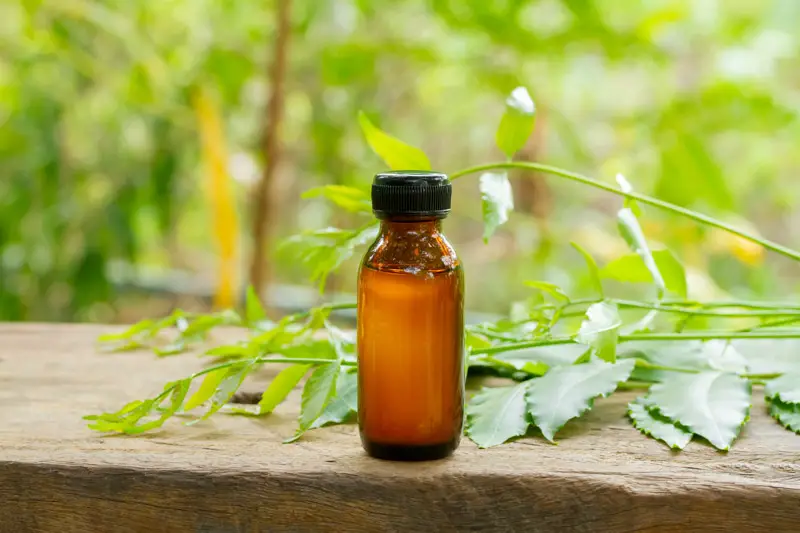
Neem oil is a natural insecticide that comes from the seeds of the neem tree. It’s an effective way to keep pests under control without harming the environment or beneficial insects.
How Neem Oil Works: Neem oil affects pests by disrupting their feeding and reproduction cycles. It’s especially effective against aphids, spider mites, whiteflies, and caterpillars. It can also help prevent fungal diseases like powdery mildew.
How to Use Neem Oil:
- Mix one to two teaspoons of neem oil with one liter of water.
- Add a teaspoon of liquid soap to help the mixture stick to leaves.
- Pour the mixture into a spray bottle and apply it to the leaves of your plants.
Tips for Best Results:
- Reapply neem oil every two to three weeks or after heavy rain.
- Spray in the early morning or late evening to avoid harming beneficial insects like bees.
- Test the spray on a small area of the plant before applying it widely.
- Neem oil is a versatile and eco-friendly solution that can help keep your garden healthy and pest-free.
4. Make Organic Bug Sprays: DIY Pest Control
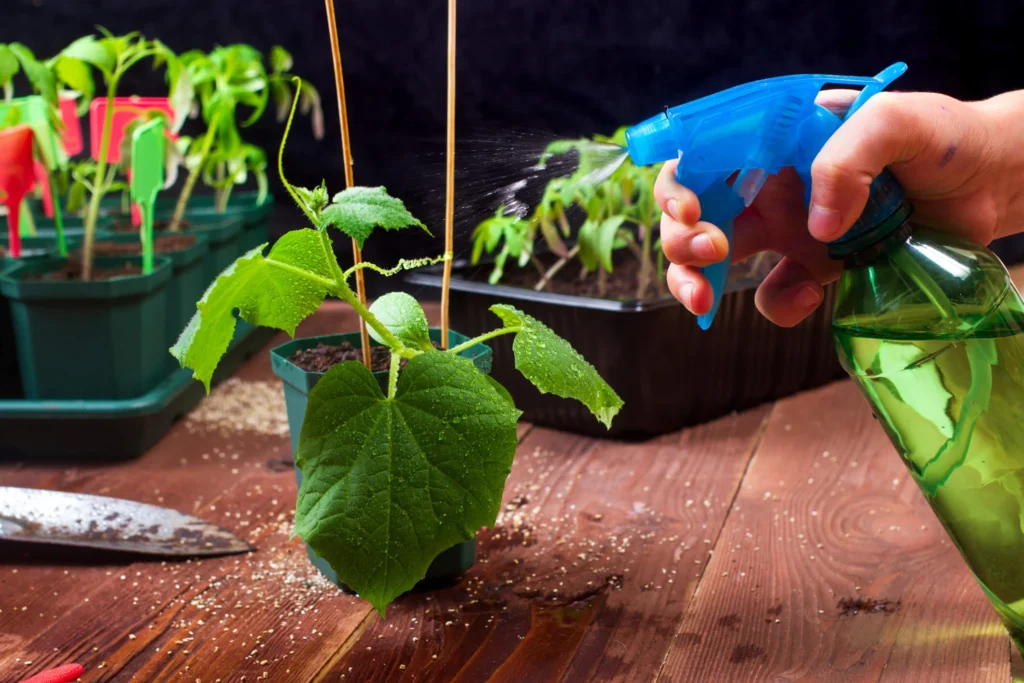
Homemade bug sprays are another easy and affordable way to protect your plants. Using simple household ingredients, you can create effective sprays to repel or kill pests.
DIY Bug Spray Recipes:
Insecticidal Soap Spray:
- Mix one tablespoon of liquid soap with one quart of water.
- Add a pinch of cayenne pepper for extra pest-repelling power.
- Spray directly onto pests like aphids and mites.
Garlic Spray:
- Blend a few garlic cloves with water.
- Strain the mixture and pour it into a spray bottle.
- Apply it to plants to deter insects like aphids and spider mites.
Vinegar Spray:
- Mix one part vinegar (white or apple cider) with three parts water.
- Add a teaspoon of dish soap for better adhesion.
- Spray around garden beds to keep bugs away.
Important Tips:
- Always test sprays on a small area before applying them to the whole plant.
- Avoid spraying during the hottest part of the day to prevent leaf burn.
- Reapply sprays after rain or every week for consistent protection.
With these homemade sprays, you can tackle garden pests naturally and effectively.
Related Topics:
5. Use Physical Barriers: Shield Your Plants
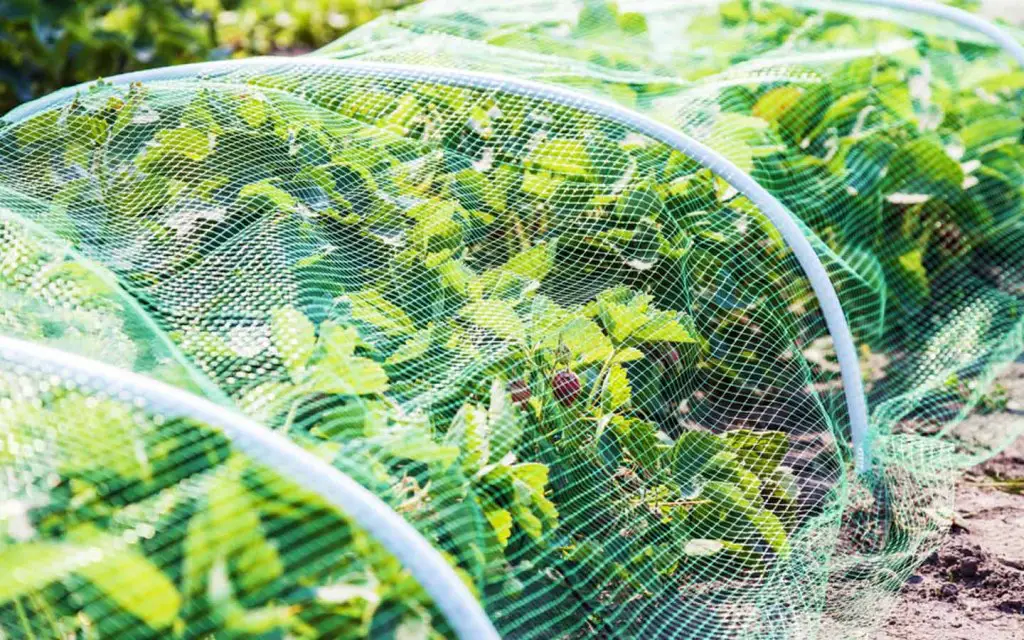
Physical barriers are a simple and effective way to protect your plants from bugs. They act as a shield, keeping pests from reaching your flowers and vegetables.
Types of Physical Barriers:
Row Covers: Lightweight fabric or mesh covers that protect plants from flying insects like cabbage moths. These covers still allow sunlight and water to pass through.
Netting: Small mesh screens can keep birds, insects, and other animals away from fruit trees and berry bushes.
Cloche Covers: Dome-shaped covers that protect individual plants from pests and harsh weather.
Tips for Using Barriers:
- Ensure the edges of row covers are secure to prevent pests from sneaking in.
- Remove barriers during pollination to allow bees and other pollinators access to your plants.
- Monitor for soil-dwelling pests that might still find their way to your plants.
- Physical barriers are a great short-term solution for protecting young plants or vulnerable crops.
6. Maintain a Healthy Garden: Prevention is Key
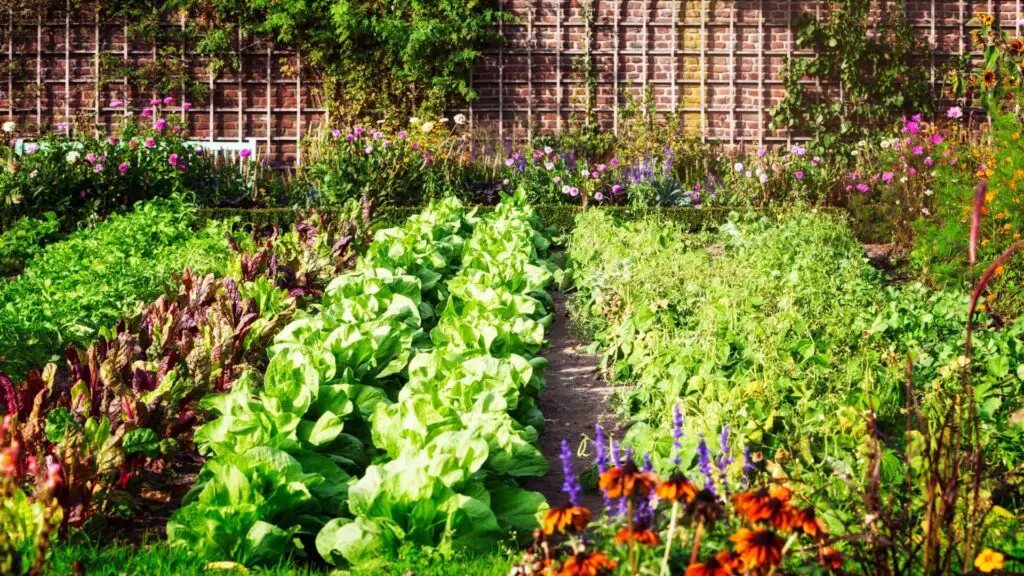
Keeping your garden clean and healthy is one of the best ways to prevent pest problems. Healthy plants are more resistant to pests and diseases.
Tips for Garden Maintenance:
Remove Debris: Clear away fallen leaves, weeds, and other debris where pests can hide and breed.
Avoid Overwatering: Too much water can create a damp environment that attracts pests like slugs and gnats. Water deeply but less frequently.
Rotate Crops: Changing the location of plants each year helps prevent pests from becoming established.
Use Organic Fertilizers: Healthy soil leads to stronger plants with natural defenses against pests.
By taking good care of your garden, you can create an environment that pests find less inviting.
You may also like:
Conclusion: A Healthier Garden, Naturally
Keeping bugs out of your garden doesn’t have to involve harsh chemicals. By using these six natural methods—companion planting, attracting beneficial insects, neem oil, organic sprays, physical barriers, and proper maintenance—you can protect your garden while supporting the environment.
These tips not only help control pests but also make your garden healthier and more beautiful. So, start implementing these ideas today, and enjoy the rewards of a thriving, bug-free garden. Remember, a little effort goes a long way in creating a balanced and sustainable garden ecosystem.
Your garden deserves the best care, and now you have the tools to make it happen naturally!

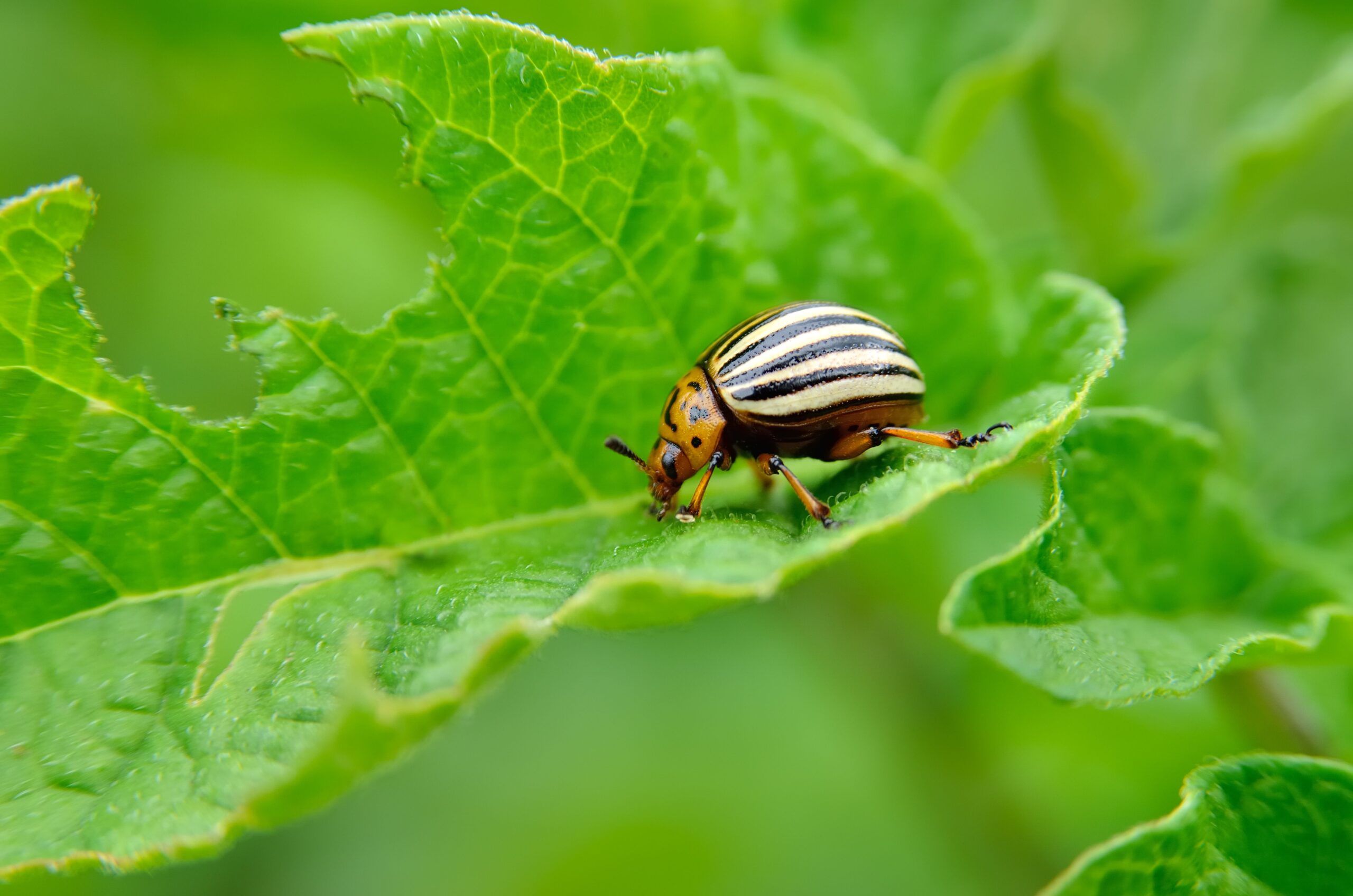
2 thoughts on “Natural Ways to Keep Bugs Out of Your Garden Without Pesticides”